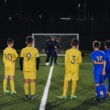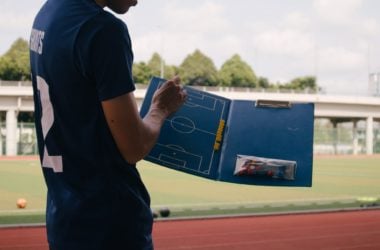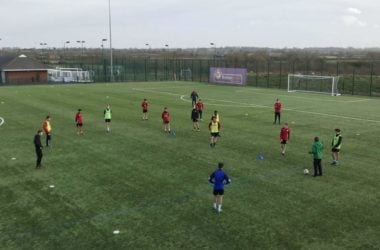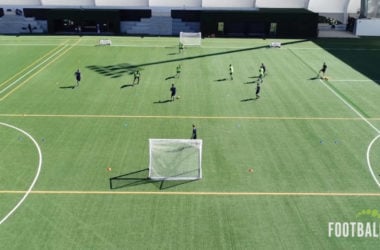Over the next few weeks we’ll be featuring some guest articles from our friends at Football DNA.
If you’re a football coach then Football DNA is really worth checking out. They provide videos, articles and more. All with the aim of helping you elevate your sessions to the next level. In their own words, it’s “the ultimate platform for coach and player development”.
To give you a taster, here’s an article from Ross Brooks about the importance of matchday coaching and how to master it.
So, why is this age group so important?
The Foundation Phase is the beginning for most players as they embark their journey in football. Children at these age groups show a real innocence to learning and play, often arriving your sessions wide eyed and full of excitement.
The role of any coach working in the Foundation Phase, is to make sure they leave these age groups ‘still in love with the game’. It is seen too often children entering secondary school age groups losing the love of the game and ‘burning out’, with no interest in playing football anymore. Success for any coach in these age groups is to make sure that children continue their love of playing football.
Coaches in these age groups play an important part in children’s development; acting as a ‘role model’ you can be a significant influence on children. Therefore, it’s important that coaches that take on coaching in these age groups don’t just do it because they’re coaching their sons team or have been shoved into it by their club.
Often, when speaking with coaches with a large amount of experience they acknowledge that these age groups are the most important. We have a responsibility to give children the best level of provision by providing a fun, safe, learning environment for them to play football with their friends. Do not underestimate the skills and knowledge required to work in these age groups.
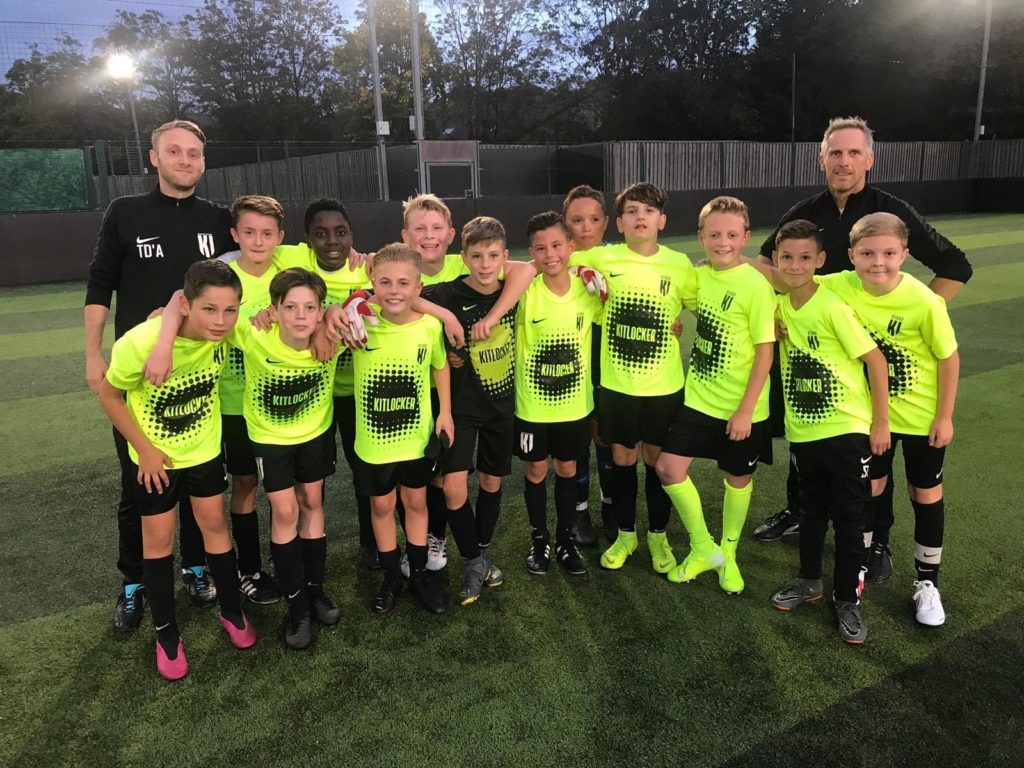
Children; not footballers:
As coaches, we can get drawn into football terminology, coaching points, topics etc. when working with children in these age groups and lose sight that we are working with children. They’re not players. They’re not a defender or a midfielder. They are children.
I encourage any coach to refrain from using such terminology and instead refer to them as children. Therefore, to be great coach working these age groups you need to spend time delving deeper into how children learn, develop and what they need most at these age groups.
In a child‘s eyes, anything is possible and their imagination is endless. As I explored in one my previous blogs https://footballdna.co.uk/how-can-we-develop-creative-players/, children have limits beyond recognition to be creative and use their imagination to explore their world and express themselves, we as coaches cannot limit this.
What is the objective?
- When deciding on how you will approach training it is recommended that you understand what the objectives are when working with these age groups.
- What are you trying to achieve?
- What is most important to the children?
- What are the most important things for children to get out of your coaching sessions?
- How do you want to be remembered as a coach?
These four questions can provide an excellent framework for any coach when deciding upon how they will approach working with children in these age groups.
Firstly, what you are trying to achieve may vary from one setting to the next, however, I would challenge any coach working in these age groups irrespective of the level that they’re working in to really focus on what matters most. Of course, you may as a coach want to help the children become technically excellent or fluid as a mover for example; but actually what you should be aiming to achieve should be based around children’s view of learning, playing and participating in football. An example of a statement which may define this could be ‘building a platform for a lifelong love of football’.
The second question, what is most important to children at these age groups, is something I would give them. What is important to them? When asking this question the responses you will usually get is: “having fun, playing with their friends, playing matches, becoming a footballer” etc. Building a greater understanding of what is most important to children at these age groups will help you to tailor a programme which connects to what they want from their experience when playing football under your care. When approaching your coaching sessions the two previous questions will ultimately help govern what/how you will approach your coaching sessions. Often these age groups as classed as the ‘Foundation Phase’ and as a result creating sessions that help build the foundations is a great start. Look at what the children need physically, socially, psychologically and technically to achieve in your sessions and create games/practices based around this. Remember, do not lose sight that in these age groups ‘play’ plays a significant part into how children can learn and develop and your sessions should be play/game led.
Finally, how do you want to be remembered as a coach? Guess what… when children work with you they don’t think you’re the worlds best coach with the best tactics and coaching points. Children want to have a connection with their coach and a relationship where they feel their coach is there to help them develop, learn and have fun. Your coaching behaviours alongside what experiences you provide for the children will be how you are remembered.
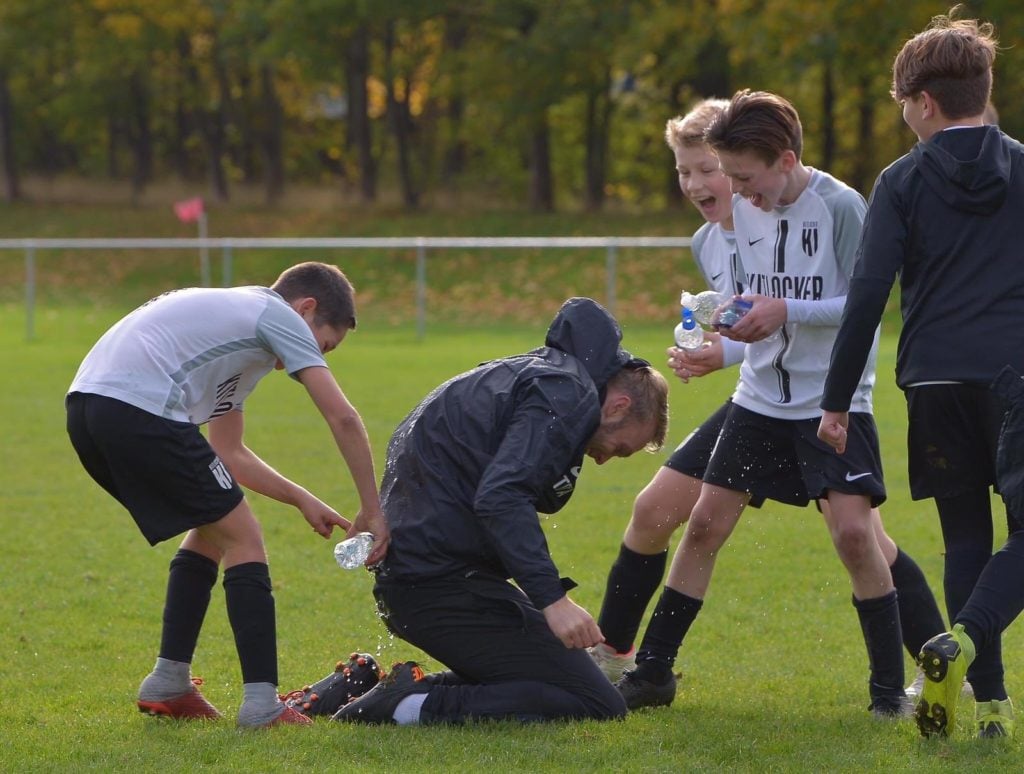
Working with Parents:
One of the best bits of advice that I have had when coaching is to work children as if they’re your own. Understanding what the parents want for their children is a great way to ensure you are providing them with provision that makes them feel happy with the environment you’re providing for them. Now, some parents may want their children to be a footballer, however, in reality parents just want their children to have fun, be safe and to learn and improve.
Working with your parents is essential; they are the biggest influencers of children at these age groups and to ensure that they’re delivering similar messages to you, I would certainly recommend you being as transparent as possible with them. For more details on how you can work with your parents, take a look at my previous blog: https://footballdna.co.uk/3-tips-to-develop-player-parents-coach-relationships/
Be open and honest and most importantly treat each child equally giving them all the same opportunities.
- To conclude here are some top tips when working with children in these age groups:
- Individual first (make sure you give children equal opportunities and you plan to help each individual child be the best they can be)
- Make a fun, safe and positive learning environment.
- Model behaviours of the coach you want to be remembered as.
- Consider what is most important to children at these age groups?
- Create an environment which engages children’s imagination, creativity and allow them to explore through play.
If you are a coach in this age group then check out the Football DNA U9 – U12 Curriculum which has a Full Season 36 Week plan full of drills and sessions!

